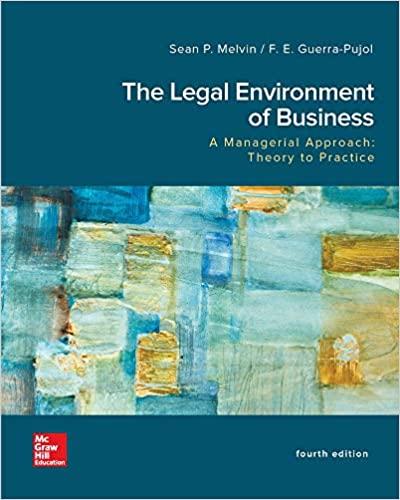A week after assuming office, President Donald J. Trump issued an executive order suspending the entry of
Question:
A week after assuming office, President Donald J. Trump issued an executive order suspending the entry of all refugees to the United States for 120 days, barring Syrian refugees indefinitely, and blocking the entry of citizens from seven predominantly Muslim countries (Iran, Iraq, Libya, Somalia, Sudan, Syria, and Yemen) into the United States for 90 days. President Trump’s controversial travel ban caused chaos at many U.S. airports and led to an avalanche of lawsuits. Instead of revoking the ban, President Trump eventually issued a revised travel ban in the form of a presidential proclamation on September 24, 2017. The new travel ban imposed restrictions on foreign nationals entering the United States from Chad, Iran, Libya, Somalia, Syria, and Yemen as well as from North Korea and Venezuela. Although the travel restrictions varied in their details, for the most part citizens of these countries were forbidden from entering the United States, and many of them were also barred from working, studying, or vacationing in the U.S. (Chad was later removed from the list.) “ Making America Safe is my number one priority. We will not admit those into our country we cannot safely vet,” President Trump tweeted just after he released the controversial travel ban caused chaos at many U.S. airports and led to an avalanche of lawsuits. Instead of revoking the ban, President Trump eventually issued a revised travel ban in the form of a presidential proclamation on September 24, 2017. The new travel ban imposed restrictions on foreign nationals entering the United States from Chad, Iran, Libya, Somalia, Syria, and Yemen as well as from North Korea and Venezuela. Although the travel restrictions varied in their details, for the most part citizens of these countries were forbidden from entering the United States, and many of them were also barred from working, studying, or vacationing in the U.S. (Chad was later removed from the list.) “ Making America Safe is my number one priority. We will not admit those into our country we cannot safely vet,” President Trump tweeted just after he released the presidential proclamation. The State of Hawaii, several individuals, and a Muslim group challenged the constitutionality of the president’s travel ban in federal court. They argued that the latest ban was tainted by religious animus and not adequately justified by national security concerns.
CASE QUESTIONS
1. In deciding whether the new travel ban is constitutional or not, does it matter that the new travel ban was issued as a presidential proclamation and not as an executive order?
2. What if the travel ban had been issued on September 12, 2001, a day after the 9/11 attacks? Should that fact, standing alone, be relevant in deciding whether the travel ban is constitutional?
Step by Step Answer:

The Legal Environment Of Business A Managerial Approach Theory To Practice
ISBN: 9781260247800
4th Edition
Authors: Sean Melvin, Enrique Guerra-Pujol





